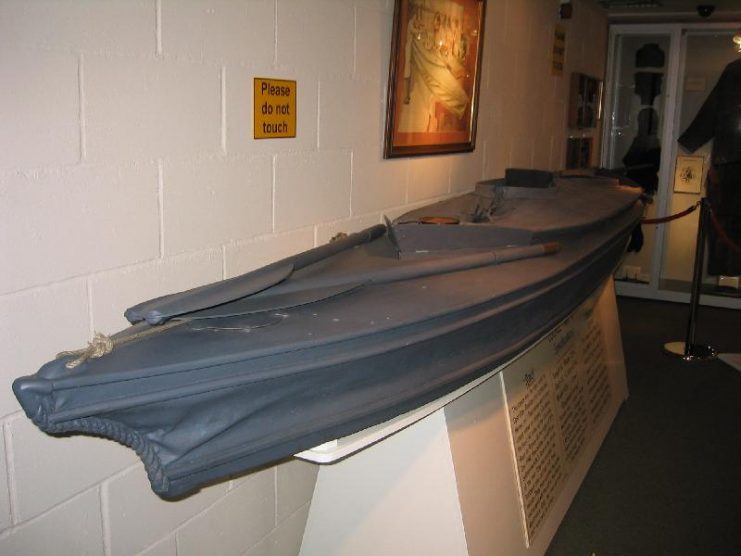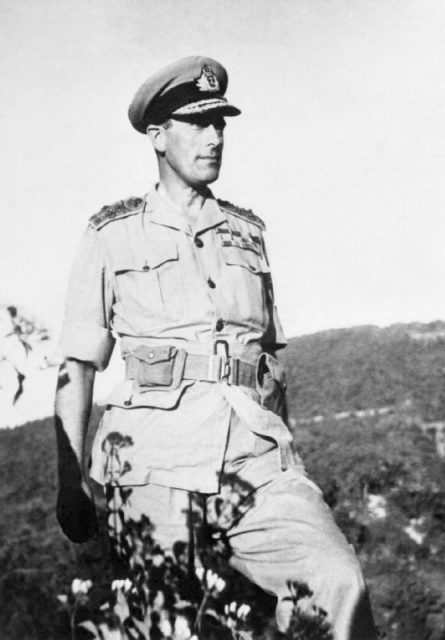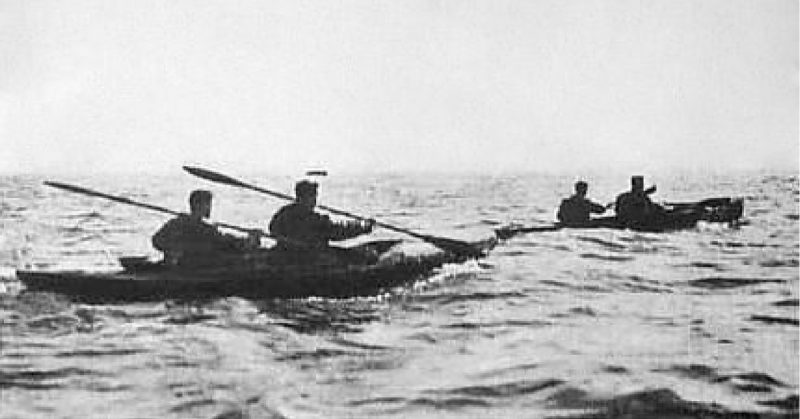Last month, the commandos who carried out Operation Frankton in WWII were remembered in Portsmouth, England on the 75th anniversary of that mission. Original black and white photographs show the preparations undertaken by the men.
Approximately 50 Royal Marines from 45 Commando attended the event. They arrived in Portsmouth on the HMS Southampton and the landing ship, Sir Percival, to pay their respects to their fallen comrades. A Royal Marine band played in their honor.
The Duke of Kent and Bordeaux’s Mayor Alain Juppe unveiled a memorial plaque at Frankton Quay which has been named in honor of the operation the Cockleshell Heroes undertook.
On December 7, 1942, a group of ten men from the Royal Marines Boom Detachment in Portsmouth, UK, launched five canoes from the submarine HMS Tuna. They then rowed up the Gironde river in the southwest of France.
Their mission was to destroy Nazi supply ships docked in Bordeaux harbor, sixty miles upstream. They carried limpet mines which they planned to attach to the vessels. The French Resistance would then help them escape overland to Spain.

The Marines had not been told about the details of their mission until their submarine was at sea. They spent eight days in cramped and undesirable conditions, while they carried out the raid they knew they were unlikely to survive.
The Germans announced on December 10 that they had captured a sabotage team near the Gironde river on December 8. However, four men had made it to Bordeaux by December 12. All ten men were listed as missing in January of 1943.
On the mission, the commandos had to fend for themselves. They destroyed five German ships used by the Nazis to supply rubber, oil, and tungsten for the German war effort. They then walked 100 miles to a French village, where they made contact with the French Resistance. In 2010, researchers discovered that a sixth ship had been extensively damaged in the attack.
Of the ten men on Operation Frankton, two drowned and six were captured and executed by the Germans. Only two men survived the raid and arrived home four months later.
The Operation was one the most daring of WWII. It was designed to minimize the impact on civilians, by avoiding dropping bombs from airplanes. The Chief of Combined Operations, Lord Mountbatten, called the raid a success. It was a much-needed boost to morale for the British troops.
The pictures reveal the difficulty of the raid for the men known as the Cockleshell Heroes.

One of the photos shows two marines testing a canoe and another, dated September 10, 1942, is the last photo of the group taken before the operation.
Another photo shows Corporal Bill Sparks leaning out of the window of an unused aircraft in Palestine. There is another picture which shows the aftermath of the attack on a ship damaged in the raid.
On March 31, 2011, a £80,000 memorial was erected to the Cockleshell Heroes and three Frenchmen.
Author Quentin Rees has written a book about the group which is published by Amberly Publishing. According to Rees, the book reveals the true story of the Cockleshell Heroes which has been kept secret for 75 years.
Lieutenant Colonel Herbert Hasler led the Royal Marines in Operation Frankton. His influence extended after the war when many of his concepts were used in the formation of the Royal Navy’s Special Forces group, the Special Boat Service.
Hasler was 28 years old when he planned and then led the team in Operation Frankton. He was awarded the Distinguished Service Order for his work. He was one of the survivors and passed away in 1987.
The other survivor was Bill Sparks. He received the Distinguished Service Medal for his role in the raid. He died on November 30, 2017, having worked as a bus conductor and inspector.
